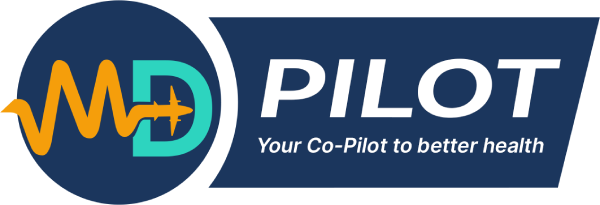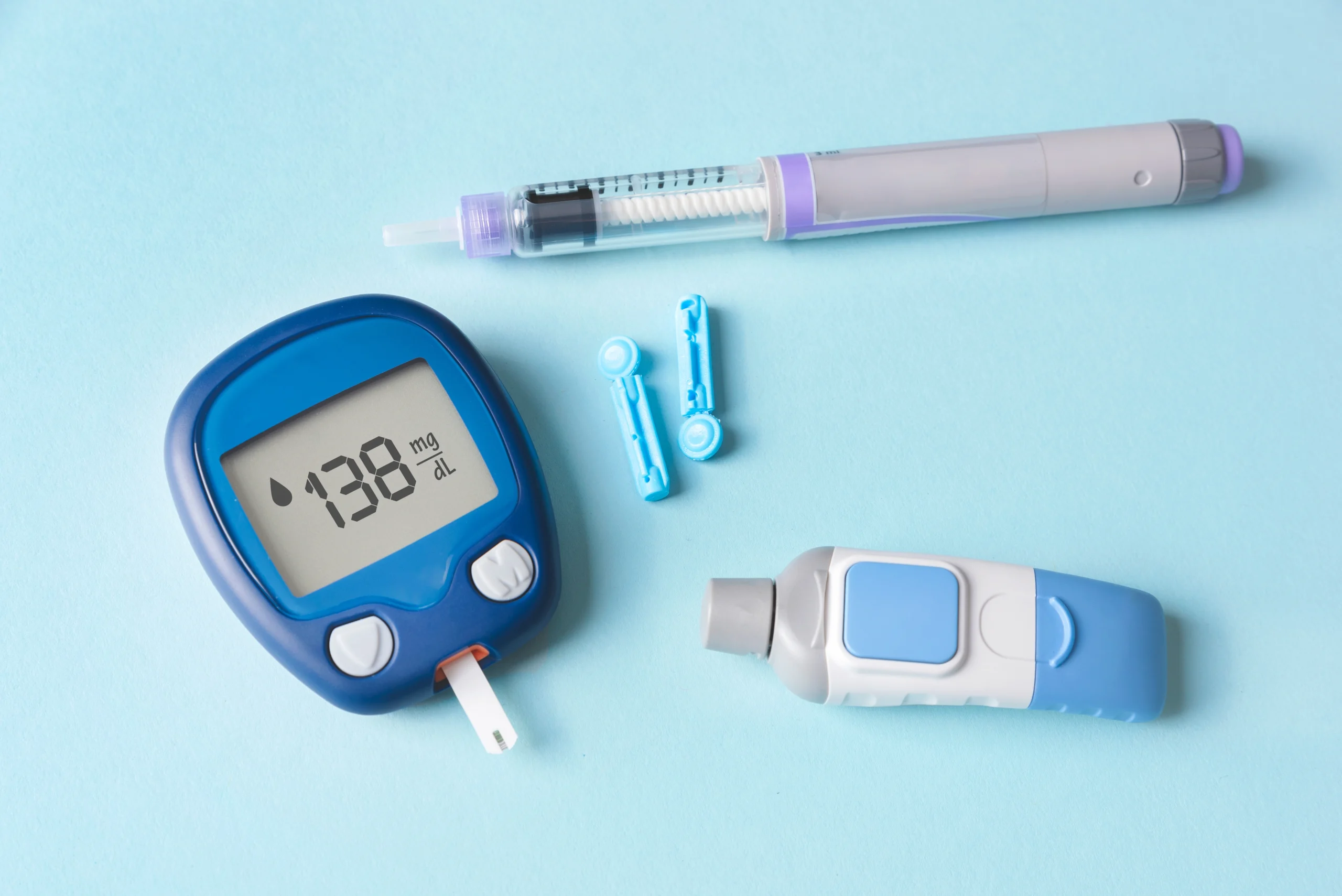Table Of Contents
-
Key Highlights
- What Is a Blood Sugar Machine and Why Is It Important?
- How to Get a Free Blood Sugar Machine Through Insurance
- How to Get a Free Glucose Meter Without Insurance
- Government and Non-Profit Programs for Free Devices
- Understanding Free Meter Offers and Ongoing Costs
- Tips for Maximizing Your Free Blood Sugar Machine
-
Frequently Asked Questions
-
Conclusion
-
References and Resources
Key Highlights
- Medicare and Medicaid coverage: Most government insurance programs provide free blood sugar machines with a doctor’s prescription, plus up to 300 test strips every three months for insulin users.
- Manufacturer coupon programs: Major brands like CONTOUR® NEXT, Accu-Chek, and TrueMetrix offer free glucose meters through pharmacy redemption programs, even for uninsured patients.
- Pharmacy promotions: CVS, Walgreens, and other chains periodically offer free meters with new diabetes diagnosis documentation or test strip purchases.
- Non-profit assistance: Local health clinics, community health fairs, and diabetes-focused charities distribute free monitoring equipment to low-income individuals.
- Documentation requirements: Most programs require a doctor’s prescription and proof of diabetes diagnosis, so have these ready before applying.
- Ongoing supply costs: While the meter may be free, test strips and lancets often require separate coverage or assistance programs.
- CGM advances: Continuous Glucose Monitors may now be available for free through some insurance plans as of 2024, particularly for insulin-dependent patients.
What Is a Blood Sugar Machine and Why Is It Important?
A blood sugar machine, also known as a blood glucose meter or glucometer, is a small electronic device that measures the amount of glucose in your blood. Regular blood sugar monitoring is essential for effective diabetes management, allowing you to track how food, exercise, medication, and stress affect your glucose levels throughout the day.
Types of Blood Sugar Monitoring Devices
Traditional glucose meters require a small blood sample obtained by pricking your finger with a lancet. The blood is placed on a test strip, which the meter reads to provide a glucose reading within seconds. More advanced options include:
- Standard glucose meters: Most common type, requiring test strips and finger stick blood samples
- Continuous Glucose Monitors (CGMs): Wearable devices that provide real-time glucose readings without finger sticks
- Flash glucose monitors: Sensors that provide readings when scanned with a reader device
According to the CDC, regular blood sugar testing helps prevent serious diabetes complications including heart disease, kidney damage, and vision problems. The American Diabetes Association recommends testing frequency based on your treatment plan and diabetes type.
How to Get a Free Blood Sugar Machine Through Insurance
Medicare Coverage for Blood Glucose Monitors
Medicare Part B covers blood sugar monitors and testing supplies when prescribed by your doctor for diabetes management. Here’s the step-by-step process:
- Get a prescription: Your doctor must prescribe the meter and specify testing frequency
- Choose a Medicare-approved supplier: Use Medicare.gov’s supplier directory to find participating durable medical equipment (DME) suppliers
- Submit documentation: Provide your prescription and Medicare information to the supplier
- Receive your equipment: Medicare covers 80% of approved costs, and supplemental insurance often covers the remaining 20%
Medicare also covers test strips (up to 300 every three months for insulin users, 100 for non-insulin users) and lancets. For 2024, many Medicare Advantage plans now include enhanced diabetes coverage, potentially covering premium meters and CGM devices.
Medicaid Coverage Variations
Medicaid coverage for free glucose meters varies by state, but most programs provide comprehensive diabetes supplies. For example:
- West Virginia Medicaid: Covers specific brands including Roche Accu-Chek and Trividia meters through preferred supplier lists
- California Medicaid (Medi-Cal): Provides free meters and supplies through contracted pharmacies
- Texas Medicaid: Covers glucose monitors with prior authorization and doctor’s prescription
Private Insurance Coverage
Most commercial insurance plans cover blood glucose monitors as durable medical equipment. Contact your insurance provider to understand:
- Your plan’s preferred meter brands and suppliers
- Copayment requirements (often $0-25 for the meter)
- Prior authorization requirements
- In-network pharmacy or DME supplier restrictions
Pathways to Free Blood Sugar Machines
Insurance Route
Medicare, Medicaid, or
private insurance with
doctor’s prescription
Manufacturer Programs
Brand coupons and
sample programs
through pharmacies
Non-Profit Assistance
Community health clinics
and diabetes charities
Pharmacy Promotions
CVS, Walgreens, and chain
pharmacy programs
Government Programs
HRSA clinics, health
department programs
FREE METER
Multiple paths available
for every situation
How to Get a Free Glucose Meter Without Insurance
Don’t have insurance? You still have multiple options to get a free blood glucose meter. Manufacturer programs and pharmacy promotions specifically target uninsured patients.
Manufacturer Free Sample Programs
Major glucose meter manufacturers offer coupon programs that provide free meters when redeemed at participating pharmacies:
- CONTOUR® NEXT (Ascensia): Offers free meter coupons valid at most major pharmacies with prescription
- Accu-Chek (Roche): Provides free starter kits including meter, test strips, and lancets
- TrueMetrix (Trividia): Available through state Medicaid preferred lists and pharmacy programs
- ReliOn (Walmart): Budget-friendly meters with frequent promotional offers
How to Redeem Manufacturer Coupons
- Obtain a prescription: Visit your doctor or local clinic for a blood glucose meter prescription
- Download or print coupon: Visit the manufacturer’s website or pick up cards at pharmacy
- Visit participating pharmacy: Most major chains accept manufacturer coupons
- Present documentation: Bring prescription, coupon, and ID to pharmacy counter
- Receive your meter: Most programs provide the meter at no cost, though some require test strip purchase
Pharmacy-Sponsored Programs
National pharmacy chains periodically offer free glucometer programs:
- CVS Health: ExtraCare diabetes program occasionally includes free meter offers for new customers
- Walgreens: Pharmacy rewards members receive periodic free meter promotions
- Rite Aid: Wellness+ program includes diabetes supply discounts and occasional free meter offers
- Local pharmacies: Independent pharmacies often have agreements with specific manufacturers for customer promotions
Government and Non-Profit Programs for Free Devices
Federally Qualified Health Centers (FQHCs)
HRSA-funded health centers provide comprehensive diabetes care including free blood sugar machines for qualifying patients. To find centers near you:
- Visit findahealthcenter.hrsa.gov
- Enter your zip code to locate nearby FQHCs
- Call to schedule an appointment and ask about diabetes supply programs
- Bring proof of income and residency for eligibility determination
Children's Health Insurance Program (CHIP)
CHIP provides enhanced coverage for families with children who have diabetes, often including premium glucose monitoring equipment and supplies with minimal copayments.
Non-Profit Organizations
- Lions Club International: Many local chapters provide free medical equipment including glucose meters
- Diabetes research organizations: Some offer free supplies through research participation programs
- Faith-based health ministries: Churches and religious organizations often maintain medical equipment programs
- Community health fairs: Annual events frequently distribute free glucose meters and conduct diabetes screenings
Understanding Free Meter Offers and Ongoing Costs
What's Typically Included
Most free blood sugar machine programs include:
- The glucose meter device
- Carrying case
- Lancing device (finger stick tool)
- Initial supply of test strips (usually 10-25 strips)
- Sample lancets
- User manual and quick start guide
Ongoing Supply Costs to Consider
While the meter itself may be free, ongoing supplies represent the largest diabetes monitoring expense:
- Test strips: $20-100+ per month depending on testing frequency and brand
- Lancets: $10-20 per month for daily testing
- Control solution: $5-15 every few months for meter accuracy verification
Assistance Programs for Ongoing Supplies
- Manufacturer co-pay cards: Reduce test strip costs by 50-90% for insured patients
- Pharmacy discount programs: GoodRx, NeedyMeds.org, and similar services
- Insurance formulary optimization: Choose meter brands with best insurance coverage for supplies
- Bulk purchasing programs: Some manufacturers offer direct-to-consumer supply programs
Tips for Maximizing Your Free Blood Sugar Machine
Ensuring Accurate Results
- Proper storage: Keep meter and strips in cool, dry environment
- Regular calibration: Use control solution monthly to verify accuracy
- Clean hands: Wash hands before testing to avoid contaminated readings
- Fresh test strips: Check expiration dates and store strips properly
Record Keeping for Insurance Compliance
Maintain detailed testing logs to ensure continued coverage and optimal diabetes management:
- Date and time of each test
- Blood glucose reading
- Notes about meals, exercise, or medication timing
- Any symptoms or unusual circumstances
Replacement and Warranty Information
Most free glucose meters come with manufacturer warranties covering defects and malfunctions. Keep documentation for:
- Warranty replacement procedures
- Customer service contact information
- Insurance replacement policies for lost or damaged equipment
Frequently Asked Questions
Yes, multiple programs serve uninsured patients. Manufacturer coupon programs, community health centers, and non-profit organizations provide free glucose meters with proper documentation. You’ll typically need a doctor’s prescription and proof of diabetes diagnosis.
Most programs include a starter supply of test strips and lancets, but ongoing supplies usually require separate coverage. Medicare and Medicaid provide ongoing supply coverage, while manufacturer programs may offer co-pay assistance cards for insured patients.
CONTOUR® NEXT (Ascensia), Accu-Chek (Roche), and TrueMetrix (Trividia) currently offer the most comprehensive free meter programs. These brands have wide pharmacy acceptance and good ongoing supply assistance programs.
Frequency varies by program. Manufacturer coupons are typically “one per person” offers, while insurance programs allow replacement for medical necessity or equipment malfunction. Medicare covers replacement every 5 years or sooner if medically necessary.
Yes, nearly all legitimate free blood glucose meter programs require a valid prescription from a healthcare provider. This ensures proper diabetes diagnosis and appropriate device selection for your medical needs.
As of 2024, some insurance plans now cover CGMs for qualifying patients, particularly those using insulin or with history of hypoglycemia. Medicare expanded CGM coverage in 2024, and some manufacturer programs offer CGM trials for eligible patients.
Medicare and most insurance plans have policies for replacing lost or damaged diabetes supplies, especially in emergency situations. Keep your supplier contact information handy, and document any loss for insurance claims.
Conclusion
Getting a free blood sugar machine in 2024 is more accessible than ever, with multiple pathways available regardless of your insurance status. Whether you qualify for Medicare or Medicaid coverage, can take advantage of manufacturer coupon programs, or need to access community health resources, there’s likely a program that can help you obtain the glucose monitoring equipment you need.
Remember that while securing a free meter is important, the ongoing costs of test strips and lancets represent the larger financial commitment. Research supply assistance programs alongside your meter acquisition to ensure comprehensive diabetes management support. Take advantage of manufacturer co-pay cards, pharmacy discount programs, and insurance formulary options to minimize your long-term testing costs.
Start by determining your best pathway based on your insurance status, then gather the necessary documentation including your doctor’s prescription and proof of diabetes diagnosis. Whether you choose the insurance route, manufacturer programs, or community resources, taking action today can save you hundreds of dollars while ensuring you have the tools needed for effective diabetes management.
Have you explored all the free blood sugar machine options available to you? Take the first step by contacting your healthcare provider about a prescription and researching which programs best fit your specific situation.
References and Resources
- Medicare.gov: Blood Sugar Monitors Coverage – Official Medicare coverage guidelines and eligibility requirements
- Medicare Coverage of Diabetes Supplies, Services & Prevention Programs – Comprehensive coverage guide
- NIDDK: Financial Help for Diabetes Care – National Institutes of Health resource guide
- West Virginia PDSL – Preferred Diabetic Supply List 2024 – State Medicaid coverage example
- Ascensia/Contour Next – Free Blood Glucose Meter Coupon – Manufacturer coupon program example
- CDC: Monitoring Your Blood Sugar – Official guidance on blood sugar testing
- Harvard Health Publishing: Continuous Glucose Monitors for Type 2 Diabetes – CGM coverage and eligibility information
- NeedyMeds.org – Non-profit organization supporting access to affordable medications and supplies
- HRSA Health Center Finder – Locate federally qualified health centers near you
Disclaimer:
The information provided on MD-Pilot is for educational and informational purposes only. It is not intended as a substitute for professional medical advice, diagnosis, or treatment. Always seek the advice of your physician or other qualified healthcare provider with any questions you may have regarding a medical condition. Never disregard professional medical advice or delay in seeking it because of something you have read on this website.
Recomended Articles
View AllWeekly Health Intel
Get evidence-based health tips, latest research, and exclusive guides delivered weekly




